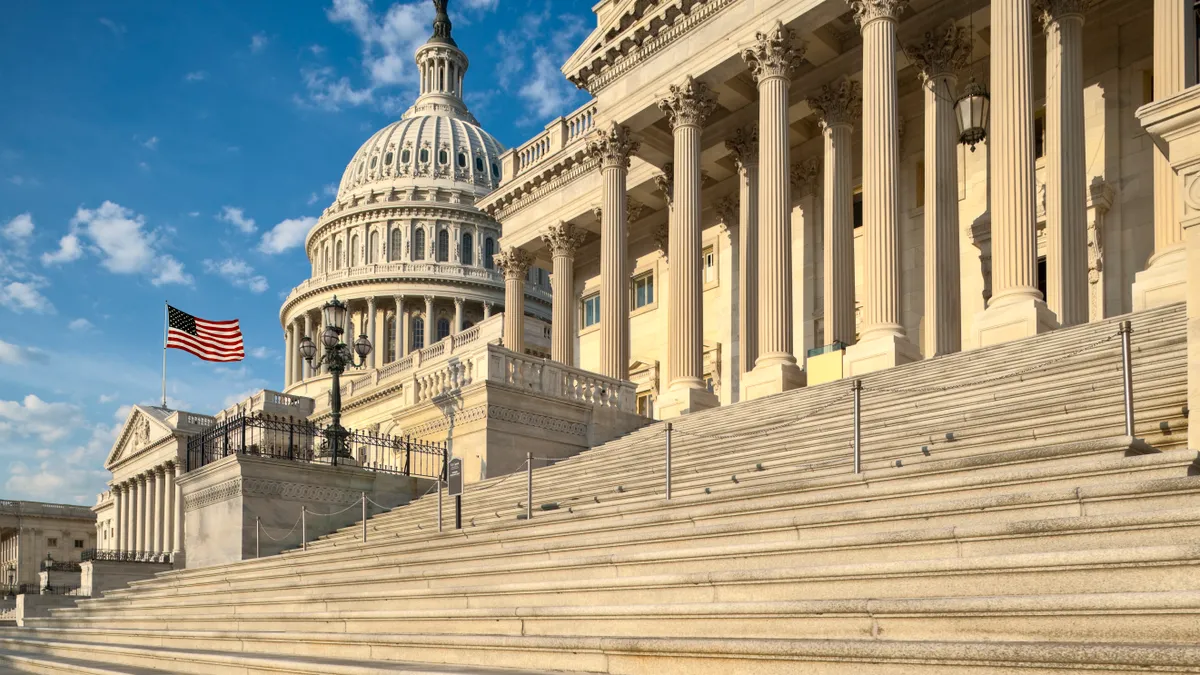Lessons learned from COVID-19’s impact on K-12 include the harmful effects of prolonged school closures and the need for more spending and reporting guardrails for federal relief funding, lawmakers and panelists said during a House Subcommittee on Healthcare and Financial Services hearing Tuesday.
But while some speakers denounced pandemic-era decision-making, others wanted to focus on what to do going forward to catch students up academically. Expanding high-dosage tutoring and combating chronic absenteeism were widely agreed upon solutions.
Nat Malkus, a senior fellow at the American Enterprise Institute, told lawmakers the slow pace of improved attendance after school closures means attendance rates may not rebound to pre-pandemic levels until 2030. He added that absenteeism hit lower-achieving and high-poverty schools harder.
"Addressing absenteeism is crucial for overcoming learning loss, and it will hamper interventions like tutoring or extended learning time," Malkus said.
While politicians on the committee strongly agreed about the disappointing academic and attendance rates, both Democratic and Republican lawmakers accused each party of having political agendas that interfere with progress. Similar accusations have been voiced at other committee hearings.
Conservative members criticized what they said were politically-motivated school closures and masking policies, as well as efforts aimed at grading equity, discipline practices, and diversity, equity and inclusion.
Rep. Eric Burlison, R-Missouri, said federal money provided to schools for COVID recovery was, in some cases, used for "nonsense" programs like DEI, critical race theory and gender ideology.
"Right now public schools are really, in my opinion, failing to do their most basic duty — educating our children," Burlison said.
Liberal policymakers, on the other hand, condemned Republican-led efforts to ban books about gender identities and the history of racism.
Republicans are "so desperate for distractions, as they defund our classrooms and deprive our teachers, that they're banning books and censoring teachers and bullying LGBTQ+ kids and they're erasing Black histories in an attempt to turn us against our schools," said Rep. Summer Lee, D-Pennsylvania.
Subcommittee Chair Lisa McClain, R-Michigan, said she wanted more data on how districts are spending federal funds from the Elementary and Secondary School Emergency Relief program.
"We need to do a better job of getting that data, because maybe we're doing it right. I don't know," McClain said. "It would appear that we could do a lot better with the declining reading and math scores and absenteeism.”












